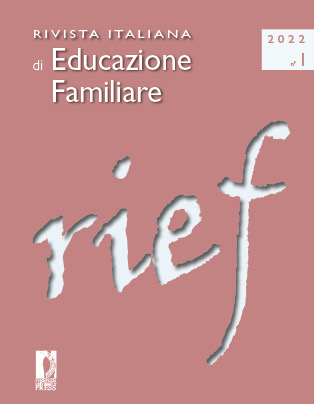Processi di tipizzazione di genere in famiglie con genitori migranti e a rischio di povertà educativa: un’esperienza formativa condotta nell’ambito del Progetto “Ali per il Futuro”
Published 2022-07-06
Keywords
- gender-typing,
- gender stereotypes,
- educational poverty,
- parenting,
- migration
How to Cite
Abstract
Gender typing is the process by which children acquire the values, motives and behaviours considered appropriate for their gender, in their particular culture. Parents have a significant impact on children’s gender typing because they may directly instruct children to behave in certain (gender typed) ways; or implicitly model and/or reinforce certain types of behaviour in children. Culture and society have also a great impact: indeed, there are variations between and within cultures in male/female roles and stereotypes, how they are accepted and how they affect behaviour. In any case, gender differentiation and gender-typing have profound social and personal consequences. For instance, access to education remains stereotypically gendered with consequences for educational poverty. Gender typing process were explored in a group of migrant parents at risk for educational poverty participating in a training experience within “Ali per il Futuro” Project.



